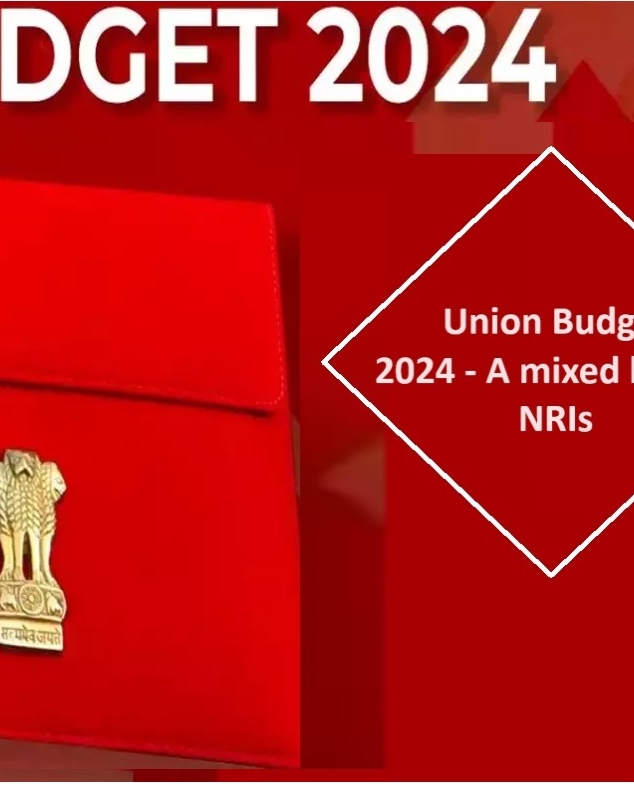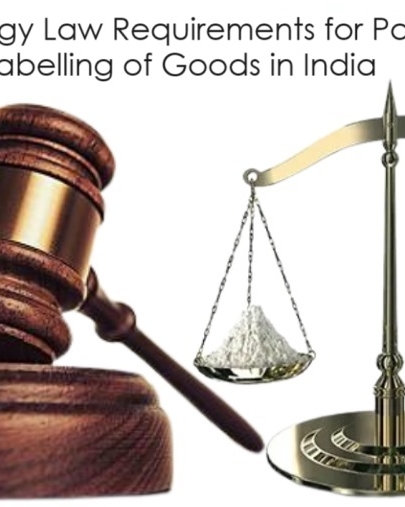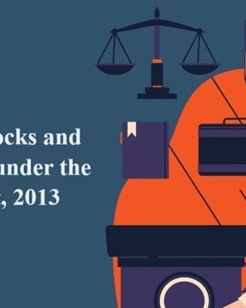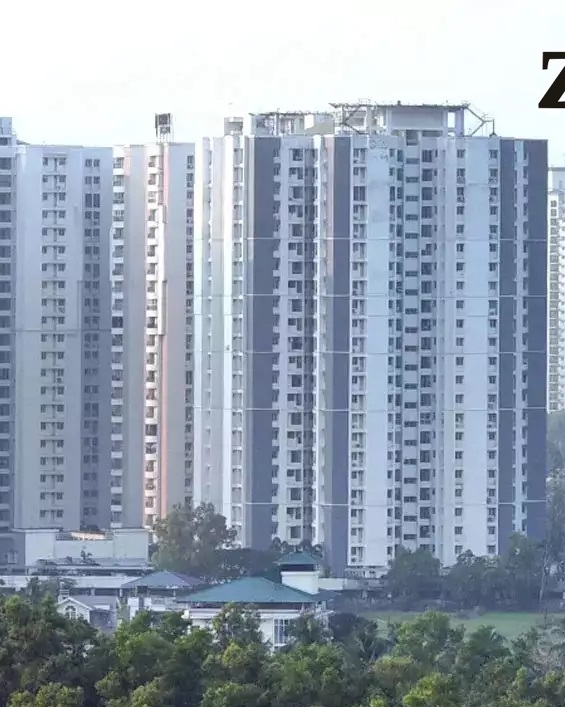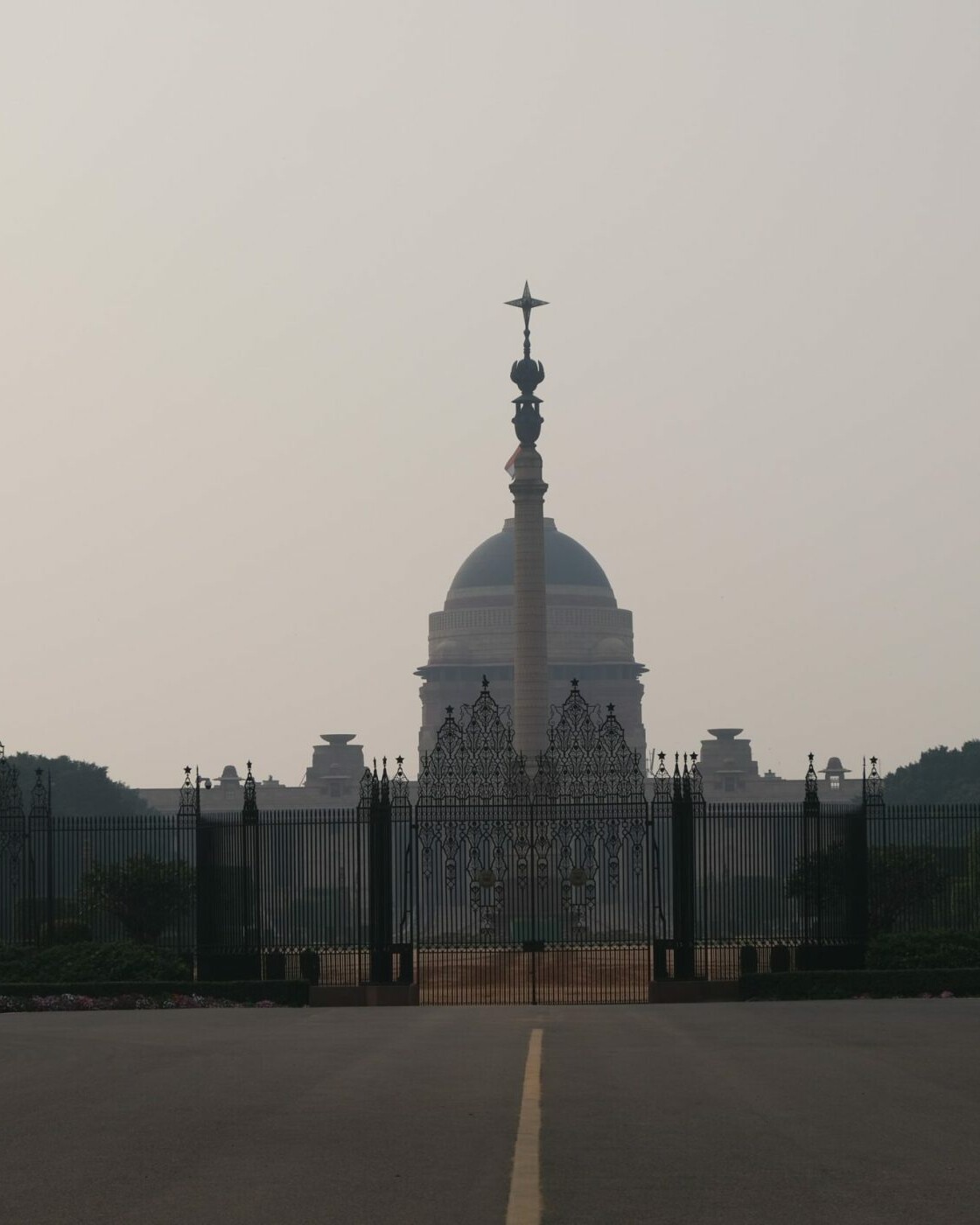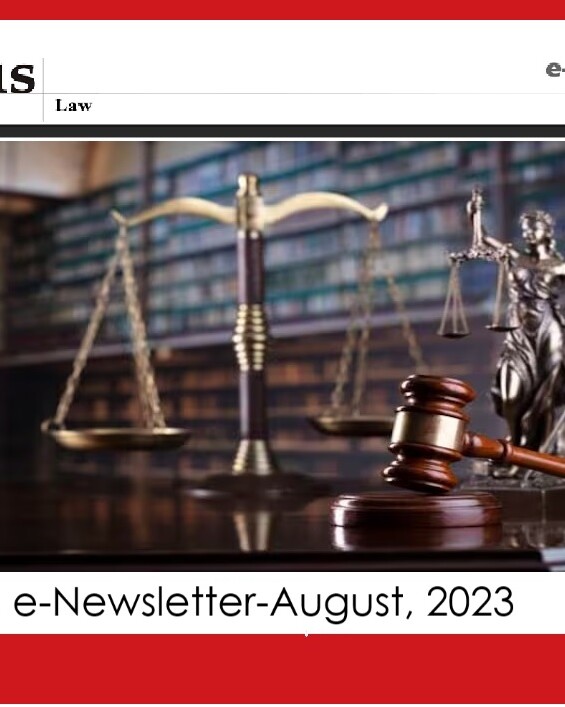Highlights:
Corporate Brief
- Circular dated 04.01.2023 issued by RBI on Foreign Investment in India- Rationalisation of reporting in Single Master Form (SMF) on FIRMS Portal.
- Circular dated 05.01.2023 issued by SEBI on Relaxation from compliance with certain provisions of the SEBI (Listing Obligations and Disclosures Requirements) Regulations, 2015.
- Circular dated 12.01.2023 issued by SEBI on Facility of conducting meetings of unitholders of REITs through Video Conferencing or Other Audio-Visual means.
- Circular dated 12.01.2023 issued by SEBI on Facility of conducting meetings of unitholders of InvITs through Video Conferencing or Other Audio-Visual means.
- Circular dated 12.01.2023 issued by SEBI on participation of AIFs in credit default swaps.
RERA Brief
- Order dated 10.01.2023 issued by Maharashtra Real Estate Regulatory Authority regarding real estate agent training and certification.
- Public Notice issued by Kerala Real Estate Regulatory Authority regarding Form No. 6 of the Kerala Real Estate Regulatory Authority (General) Regulations, 2020.
NCLT Brief
- Case Analysis: Hem Singh Bharana Vs. M/s Pawan Door Estate Private Limited & others – NCLAT, Delhi [CA (AT) (Ins) 1481 of 2022]
Litigation Brief
- Maintainability of an appeal under Section 13(1A) of Commercial Courts Act for an order passed under Section 36 of Arbitration and Conciliation Act
- “Builder/Developers cannot backout of the promises and assurances made in a brochure/advertisement”: Hon’ble Supreme Court
Corporate Brief
Circular dated 04.01.2023 issued by RBI on Foreign Investment in India- Rationalisation of reporting in Single Master Form (SMF) on FIRMS Portal.
- RBI, vide circular dated 04.01.2023 on Foreign Investment in India- Rationalisation of reporting in Single Master Form (SMF) on FIRMS Portal, has implemented the following changes with respect to the reporting requirements of foreign investment in SMF on FIRMS portal:
- The forms submitted on the portal will be auto-acknowledged. The AD banks shall verify the same within five working days based on the uploaded documents, as specified.
- In cases of delayed reporting, the AD banks shall either advise the Late Submission Fee (LSF) to the applicants, which will be computed by the system or advise for compounding of contravention, as the case may be.
Circular dated 05.01.2023 issued by SEBI on Relaxation from compliance with certain provisions of the SEBI (Listing Obligations and Disclosures Requirements) Regulations, 2015.
- SEBI, having received representations from listed entities seeking extension of the relaxations provided in the SEBI circular dated May 12.05.2020, beyond 31.12.2022, and after due consideration has decided to extend the relaxation in respect of requirements relating to dispatching hard copy of the statement containing salient features of all the documents as prescribed in section 136 of the Companies Act, 2013 (financial statements, Board’s report, Auditor’s report etc.) to those shareholders who have not registered their email addresses till 30.09.2023.
- Further, as per the circular, the listed entities are to ensure compliance with the following conditions:
- In terms of regulation 36(1)(c) of the LODR Regulations, listed entities are required to send hard copy of full annual reports to those shareholders who request for the same.
- The notice of AGM published by advertisement in terms of regulation 47 of the LODR Regulations shall disclose the web-link to the annual report so as to enable shareholders to have access to the full annual report.
Circular dated 12.01.2023 issued by SEBI on Facility of conducting meetings of unitholders of REITs through Video Conferencing or Other Audio-Visual means.
- Regulation 22(3) of SEBI (Real Estate Investment Trusts) Regulations, 2014 provides that an annual meeting of all unit holders shall be held not less than once a year within one hundred twenty days from the end of financial year and the time between two meetings shall not exceed fifteen Further, Manager of REITs are also required to hold meetings of unit holders for certain matters specified under SEBI (Real Estate Investment Trusts) Regulations, 2014.
- SEBI, in receipt of representations from Managers of REITs to allow them to conduct meetings of unit holders through Video Conferencing or Other Audio Visual means and considering that enabling participation of unit holders through Video Conferencing or other Audio Visual means ensures maximum participation of the unit holders in the decision-making process, irrespective of their geographical location, and delivers collaborative in-person experience at their convenience, has decided to allow Manager of the REIT to conduct meetings of unit holders through Video Conferencing or Other Audio Visual means.
- The procedures required to be adopted while conducting meetings of unit holders through Video Conferencing or Other Audio Visual means have also been issued in the said circular.
- With respect to the reporting and monitoring requirements, the Manager is required to disclose to the Stock Exchange and Trustee that the meeting of unit holders will be conducted through Video Conferencing or Other Audio Visual means. Further the trustee off the REIT is required to attend meeting of unit holders and monitor the meetings conducted through Video Conferencing or Other Audio Visual means.
Circular dated 12.01.2023 issued by SEBI on Facility of conducting meetings of unitholders of InvITs through Video Conferencing or Other Audio-Visual means.
- Regulation 22(3)(a) of SEBI (Infrastructure Investment Trusts) Regulations, 2014 provides that an annual meeting of all unit holders shall be held not less than once a year within one hundred twenty days from the end of financial year and the time between two meetings shall not exceed fifteen Further, Investment Manager of InvITs are also required to hold meetings of unit holders for certain matters specified under SEBI (Infrastructure Investment Trusts) Regulations, 2014.
- SEBI, in receipt of representations from Investment Managers of InvITs to allow them to conduct meetings of unit holders through Video Conferencing or Other Audio Visual means and considering that enabling participation of unit holders through Video Conferencing or other Audio Visual means ensures maximum participation of the unit holders in the decision-making process, irrespective of their geographical location, and delivers collaborative in-person experience at their convenience, has decided to allow Investment Manager of the InvITs to conduct meetings of unit holders through Video Conferencing or Other Audio Visual means.
- The procedures required to be adopted by the Investment Manager of InvITs while conducting meetings of unit holders through Video Conferencing or Other Audio Visual means have also been issued in the said circular.
- With respect to the reporting and monitoring requirements, the Investment Manager is required to disclose to the Stock Exchange and Trustee that the meeting of unit holders will be conducted through Video Conferencing or Other Audio Visual means. Further the trustee of the InvITs is required to attend meeting of unit holders and monitor the meetings conducted through Video Conferencing or Other Audio Visual means.
Circular dated 12.01.2023 issued by SEBI on participation of AIFs in credit default swaps.
- SEBI (Alternative Investment Funds) Regulations, 2012 (‘AIF Regulations’), have been amended and notified to allow AIFs to participate in Credit Default Swaps (‘CDS’) as protection buyers and sellers and to enable AIFs to participate in CDS in terms of the conditions as may be specified by SEBI from time to time.
- As per the said circular, Category I AIFs and Category II AIFs are allowed to buy CDS on underlying investment in debt securities, only for the purpose of hedging.
- Further, Category III AIFs are allowed to buy CDS for the purpose of hedging or otherwise, within permissible leverage as specified by SEBI in its circular dated 29.07.2013.
- The conditions applicable to Category II and Category III AIFs for selling CDS and the other conditions applicable to AIFs for transacting in CDS have also been issued by SEBI in the said Circular.
Real Estate Brief
Order dated 10.01.2023 issued by Maharashtra Real Estate Regulatory Authority regarding real estate agent training and certification.
- Maharashtra Real Estate Regulatory Authority (“Maha-RERA”) vide its order no. 41/2023 dated 10.01.2023 issued directions in respect to training and certification of real estate agents registered under the Real Estate (Regulation and Development) Act, 2016 or who apply to the authority under the Real Estate (Regulation and Development) Act, 2016.
- In the said order it has been mentioned that Maha-RERA in last 2 years in consultation with association of real estate agents, home buyers, promoters and All India Institute of Local Self Governance have developed a circulum for imparting training to real estate agents and have empaneled training providers for training real estate agents online, physical or in hybrid mode as per the convience of the real estate agents with effect from February 2023.
- Further, Maha-RERA have also collaborated with the Institute of Banking Personnel Selection for conducting online examination of the real estate agents and providing “Certificate of Competency” to those who clear the examination.
- In the said order, certain directions have been issued by Maha-RERA including interalia the following:
- Real Estate Agents who have valid MahaRERA Real Estate Agent Certificate of Competency will be eligible to apply for real estate agent registeration/ renewal of registration with eefect from 01.05.2023.
- Existing Real Estate Agents shall obtain MahaRERA Real Estate Agent Certificate of Competency before 01.09.2023 and the same shall be uploaded online.
- From 01.09.2023, promoters shall ensure that under Section 4(2)(j) names of those real estate agents shall be mentioned who possees the MahaRERA Real Estate Agent Certificate of Competency.
Public Notice issued by Kerala Real Estate Regulatory Authority regarding Form No. 6 of the Kerala Real Estate Regulatory Authority (General) Regulations, 2020.
- Kerala Real Estate Regulatory Authority vide its public notice K-RERA/T3/102/2020 dated 30.01.2023 amended the format of FORM No. 6 of Kerala Real Estate Regulatory Authority (General) Regulations, 2020 with effect from 18.01.2023 and the same is available on the website.
NCLT Brief
Case Analysis: Hem Singh Bharana Vs. M/s Pawan Door Estate Private Limited & others – NCLAT, Delhi [CA (AT) (Ins) 1481 of 2022]
Issue:
Whether a settlement proposal under Section 12A of the Insolvency & Bankruptcy Code (“IBC”) can be entertained after a resolution plan has been approved by the Committee of Creditors u/s 30 IBC and pursuant thereto, an application for its approval has already been filed before the National Company Law Tribunal (“NCLT”)?
Factual Matrix:
Corporate Insolvency Resolution Process (“CIRP”) was initiated against the Corporate Debtor – Pawan Doot Estate Private Limited by the National Company Law Tribunal (“NCLT”) on 10.05.2019. Subsequently, a Resolution Plan for the Corporate Debtor was approved by the Committee of Creditors (“COC”) on 17.01.2020. Pursuant thereto, application for approval of Resolution Plan was filed by the Resolution Professional (“RP”) before the NCLT under Section 30 (6) of the IBC. Thereafter, the ex-promoter of the Corporate Debtor submitted a settlement proposal to the financial creditors vide letter dated 11.08.2022. The ex-promoter filed an application before the NCLT under section 12A of the IBC to keep in abeyance the hearing of the application filed by the RP for approval of the resolution plan which was rejected by the NCLT on 23.11.2022. Further, the application for approval of resolution plan was heard and the order was reserved on 02.12.2022. Aggrieved by the order of the NCLT, an appeal was filed before the NCLAT by the ex-promoter of the Corporate Debtor.
Contention of the Ex-Directors (Appellant):
The Counsel for the Appellant submitted that the Appellant has submitted a settlement proposal to the financial creditors under Section 12A of IBC for the Corporate Debtor which was approved by more than 84% vote. It was submitted that the mere fact that Resolution Plan has been approved by the COC is no impediment in subsequently accepting the Settlement Proposal by the COC. The commercial wisdom of the CoC is paramount and the CoC in its commercial wisdom can accept the settlement proposal which is a better financial proposal as compared to the approved resolution plan. Under Section 33, sub-section (2) of the Code, the COC has the power, even after approving the Resolution Plan, but before the approval of the Resolution Plan by the Adjudicating Authority, to approve the liquidation of the Corporate Debtor. Hence, the COC can certainly approve a Settlement Proposal under Section 12A. Thus, the RP has committed error in not submitting the settlement proposal submitted by the Appellant under Section 12A for consideration and voting before COC.
Contentions of RP (Respondent):
The Counsel for the RP refuting the submissions made by the Appellant had submitted that since the Resolution Plan has been approved, no settlement proposal could be entertained. It was submitted that the approved Resolution Plan also binds the COC and the COC itself cannot take any decision in this regard. Reliance was also placed on the judgement of the Hon’ble Supreme Court in the matter of Ebix Singapore Pvt. Ltd. vs. Committee of Creditors of Educomp Solutions Limited and Anr. Civil Appeal No.3224 of 2020 wherein it was observed that the approval of Resolution Plan by COC binds the successful resolution applicant as well as the COC. Hence, the COC could not be permitted to take any different stand at the instance of the ex-promoter. It was further submitted that no application under Section 12A of IBC could be entertained after the Plan had been approved by the COC. It was also stated that the Resolution Plan was approved more than two years ago and the ex-promoters’ settlement proposal was filed after two and a half years and hence should not be considered.
Observation of NCLAT:
- The Hon’ble Supreme Court in Ebix Singapore Pvt. Ltd. (supra) considered the Scheme of the Code and held that Resolution Plan even prior to the approval of the NCLT is binding inter se the COC and the successful resolution applicant. In event, the submission of the Appellant is accepted that even after the approval of the Plan by the COC, the COC will have power to entertain a Settlement Proposal by the ex-promoter, and hence, the timelines for the CIRP and its finality shall be breached.
- The intention of the proviso to the Regulation 30A of CIRP Regulations, 2016, which deals with withdrawal of CIRP proceedings, is that there has to be a special reason for making an application under Section 30A(1)(b) of IBC when it is filed after publication of invitation for expression of interest. The regulation clearly specifies that when ‘Expression of Interest’ is issued for inviting resolution plans then there has to be sufficient reason justifying withdrawal of the CIRP proceedings.
- Had it been intended that an application under Section 12A of IBC could be entertained even after a resolution plan was approved by the COC, then Regulation 30A(2)(a) and (b) of the CIRP Regulations ought to have included the expenses both under Regulations 33 and 34 of the CIRP Regulations. Non-mention of resolution professional costs in Regulation 30A(2) of the CIRP Regulations also give support to the contention that the Regulation does not contemplate filing of Section 12A application after approval of resolution plan by the COC. The NCLAT also discussed the aspect that when the invitation was issued for inviting expression of interest, it was open to all who are eligible to submit their resolution plan under Section 29A. The question before the NCLAT was whether the ex-promoter who had submitted settlement proposal was eligible or not under Section 29A of the IBC and after the approval of Resolution Plan these inquiries could not be entertained and embarked upon to find out the eligibility of an applicant.
Conclusion:
- In light of the above, the Hon’ble NCLAT held that no error had been committed by the NCLT in rejecting the application filed by the ex-promoter for keeping the application for approval of resolution plan in abeyance in light of the settlement proposal submitted by the Appellant. Thus, the appeal was dismissed by the Hon’ble NCLAT.
Litigation Brief
Maintainability of an appeal under Section 13(1A) of Commercial Courts Act for an order passed under Section 36 of Arbitration and Conciliation Act
Judgment referred: HP Cotton Textile Mills Ltd versus Oriental Insurance Company Ltd. 2023 SCC OnLine Del 511 pronounced on 23.01.2023 by Hon’ble Delhi High Court.
It was laid down in this judgment by the two-judge bench of Delhi High Court holding Justices Vibhu Bakhru and Amit Mahajan in the intra-court appeal against the impugned order of single judge bench of the Delhi High Court, passed under Section 36 of the Arbitration & Conciliation Act, 2016 (A&C Act), that the appeal is not maintainable under Section 13 (1A) of the Commercial Courts Act, 2015 (CC Act) as the CPC has a binding power over these acts and the abovementioned order is not the order enumerated under Order XLIII of the Code of Civil Procedure, 1908 (CPC), from which an appeal would lie.
It is observed in the current intra-court appeal that an appeal shall only lie for the orders that are enumerated in Order XLIII of the CPC, 1908. The judgment of the Apex Court in Kandla Export Corporation & Ors. vs. OCI Corporation & Ors. has been looked upon wherein the scope of an appeal under Section 13 (1A) of CC Act which is controlled by its proviso has been looked upon.
The main objection raised by the Respondent i.e., Oriental Insurance Company Ltd. is regarding the maintainability of the abovementioned appeal, which is not maintainable under Section 13 (1A) of the CC Act. The appellant i.e., HP Cotton Textile Mills filed a petition under Section 36 of the A&C Act before Hon’ble Delhi High Court for the enforcement of the arbitral award, but the petition was dismissed which led to the present intra-court appeal.
It has been reckoned by the Division bench of Delhi High Court that an appeal would lie with the Delhi High Court’s Commercial Appellate Division, against a judgment or order of the Commercial Courts. In contradiction to it, as per the proviso to Section 13(1A), an appeal shall only lie from orders that are specifically enumerated under Order XLIII of the CPC, as amended by the Commercial Courts Act and Section 37 of the A&C Act. Thus, the order passed by a single judge is not appealable under Section 37 of the A&C Act.
The contentions made by the Appellant was that the proviso to Section 13(1A) of the Commercial Courts Act is not restricted and must be read in an expansive manner, placing the reliance on the judgment of the Co-ordinate Bench of Delhi High Court in D&H India Ltd. v. Superon Schweisstechnik India Ltd (2020) which ruled that orders passed by the Single Judge while exercising its commercial jurisdiction, which were not passed under the provisions of the CPC, cannot be left out from the scope of Section 13(1A) of the Commercial Courts Act.
By analyzing both the contrary judgments and giving more light to the Apex Court’s decision and placing reliance on it, the appeal of the appellant was dismissed by this Hon’ble Bench of Delhi High Court.
“Builder/Developers cannot backout of the promises and assurances made in a brochure/advertisement”: Hon’ble Supreme Court
The Hon’ble Supreme Court of India in ‘Debhashis Sinha & Ors. vs. R. N. R. Enterprise Rep. by its Proprietor/Chairman’ [2023 SCC OnLine SC 120], has observed that a Builder/Developers cannot backout of the promises and assurances made in a brochure/advertisement, and must adhere to mandatory statutory provisions applicable including obtaining of Completion Certificate.
In the instant case, the Hon’ble Supreme Court has granted relief to owners of 36 flats in a housing complex at Kolkata. In 2008, the aggrieved flats owners had filed their complaint against Developers i.e RNR Enterprise Builders before the Hon’ble National Consumer Disputes Redressal Commission (NCDRC). According to the allegations of the flats owners, the Developer of the housing complex had failed to provide the amenities/facilities i.e. playgrounds, community hall-cum-office room, 33-feet wide concrete road, and supply of water from the Kolkata Municipal Corporation (KMC) as per the brochure/advertisement, and had further failed to furnish and provide the Completion Certificate to the flat owners, which is a statutory obligation as per the Rules of the KMC Act.
It was contended by the flat owners that in spite of the flat owners having paid the complete amount as per market value, and execution of the legal conveyance deed in favor of the flat owners, the Developer had failed to obtain the Completion Certificate. However, the Hon’ble NCDRC after considering the pleadings of the flat owners and the Developers, observed that the flat owners were not be able to established their claim. The Hon’ble NCDRC observed after reading of section 403 of the KMC Act, 1980 makes it clear that it was incumbent on both the developers as well as the flats owners to not occupy the premises in the absence of the completion certificate, both violated the law; as such, no deficiency were attributed to the flats owners.
Accordingly, the flat owners preferred the instant appeal before the Hon’ble Supreme Court . Wherein, the bench consisting of Justices S. Ravindra Bhat and Justices Dipankar Datta, pointed that out the indifferent approach of the Hon’ble NCDRC, and observed that the findings of the Hon’ble NCDRC were inaccurate. The Hon’ble Supreme Court continued to observe that it was the duty of the Hon’ble NCDRC to set things right. The Hon’ble Supreme Court observed that although the flats owners had taken possession of the flats in the absence of a completion certificate, it does not form grounds to forfeit their rights to claim such amenities/facilities as promised as per the brochure/advertisement and not to direct the Developers to apply and obtain the aforesaid certificate, which is mandatorily required by law. The Hon’ble Supreme Court also observed that the impugned order of the Hon’ble NCDRC was far too casual and the Developers are guilty of “unfair trade practice” within the meaning of Section 2(1)r of Consumer Protection Act, more over they failed to comprehend as to what the Hon’ble NCDRC meant when it observed that the flat owners “ought to have known what they were purchasing”. The Hon’ble Supreme Court also observed that after the sale of the property most commonly the jurisdiction will lie under of the consumer forum as per the Consumer Protection Act.
The Hon’ble Supreme Court, after the combined reading of Sections 430, 390, and 394 of The KMC Act, clearly states that it is the Developers who are under obligation to obtain the completion certificate, with no duty of the flat owner to apply for the same. The ruling bench, however, did not provide any compensation to the flat owners on the matter of their demand for monetary compensation.
The remand is directed only to ensure that the Developers of the Housing Complex fulfill the promises made in their brochure or advertisement, and to address any deficiencies required by the law.
***







